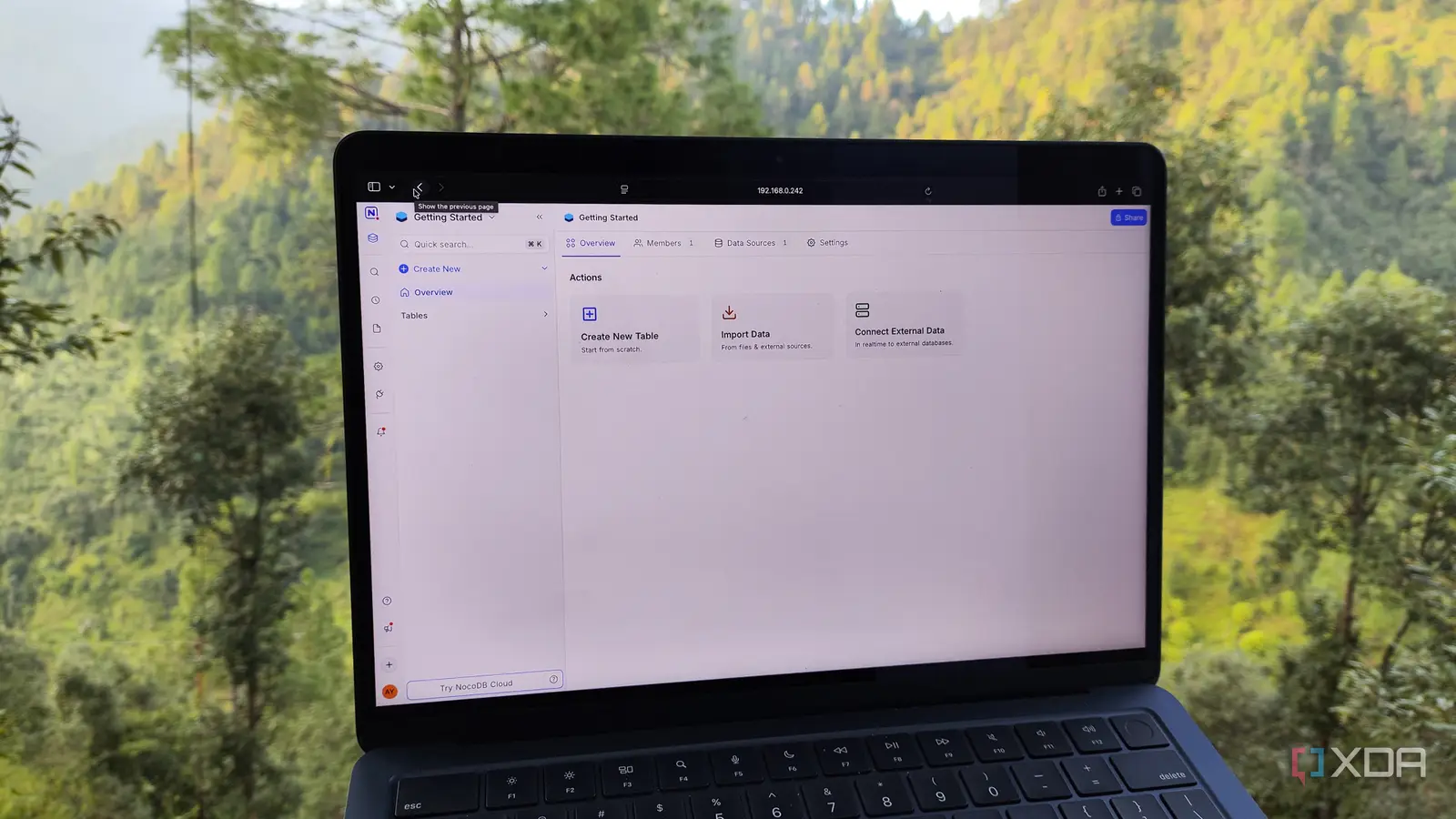
I’ve spent the last couple of months trying to replace as many paid, cloud-based platforms with private, FOSS utilities that can run on a local server. Airtable is one of these services, and while it’s one of the best spreadsheet management platforms on the block, I’m not very fond of the limited number of users, records, and automations on the free versions. Throw in the fact that all my data is stored on Airtable’s servers, and my privacy-loving self had no choice but to look for a self-hosted alternative.
My search brought me to a handful of services, including Baserow and Teable, and each app has its own unique features that make it useful for organizing spreadsheets and collaborating with other users on projects. However, I prefer NocoDB over all else, as it offers most of the features I could ask for while offering a simple setup procedure.
I don’t need to pay extra for essential features
I can assign role-based permissions to users
One of my biggest caveats with freemium self-hosted tools is that they lock several facilities behind a paywall. Truth be told, NocoDB is no exception, and you’ll have to migrate to the paid edition to unlock advanced tools for the platform. That said, the free-to-host Community Edition includes pretty much all the essential features I’d want from a task management utility.
Take the role-based permissions, for example. Sure, NocoDB’s biggest rivals, Baserow and Teable, let me collaborate on projects with my coding buddies. However, NocoDB is the only platform of the bunch that supports group-based permissions without forcing me to spend a dime on the paid plan. For example, I can set Creator, Editor, Commenter, and other roles to my teammates, with each title possessing its own set of permissions and rules. This facility is already useful for my casual coding projects, but the ability to restrict access to users becomes even more indispensable if you’re planning to use NocoDB to manage business records.
Being able to create comments on individual records is a neat way to exchange ideas on a task. Even on personal idea boards, I often leave comments when creating changelogs for my projects. Likewise, I use different views when managing my workloads instead of relying solely on the Table view.
That’s where NocoDB comes in handy. Unlike Baserow, NocoDB supports Kanban, Calendar, and Timeline views. Likewise, NocoDB lets me create comments on my records – a feature that’s lacking in the free version of Baserow. Meanwhile, Teable allows me to write up comments, though it lacks a Timeline view. And I haven’t even begun to talk about automations…
Lets me run API calls and webhook automations
Trigger-action workflows involving webhooks and APIs are the bread and butter of any project management workspace. I can use them for everything from getting notified whenever the records get modified to exporting entire database boards – all without lifting a finger.
NocoDB not only supports webhooks for each table, but also offers detailed trigger and action parameters to help me fine-tune my automation flows. Likewise, I can create API tokens to access my NocoDB instance from external apps. Throw in the all-powerful n8n, and you can use the community-created templates to deploy powerful automations. Since Teable lacks automation provisions in the free version and Baserow has yet to implement API tokens in its self-hosted variant, NocoDB wins on this front as well.
NocoDB is fairly easy to set up
Plenty of ways to deploy your NocoDB server
Another neat aspect of NocoDB is that it’s available on most containerization platforms, so you don’t have to spend a lot of time trying to get your project management server up and running.
If you’re on Proxmox, you can run the bash -c “$(curl -fsSL https://raw.githubusercontent.com/community-scripts/ProxmoxVE/main/vm/docker-vm.sh)” command within the Shell node of your PVE server and sit back while the script works its magic. Likewise, NocoDB is available on practically every platform designed for running containers, including CasaOS, Cosmos, Runtipi, and YunoHost.
On the other hand, Baserow is only available on CasaOS and Cosmos’ app stores. Teable, however, isn’t available on any of these platforms, so you’ll have to go the old-fashioned Docker route and configure the environment variables manually to deploy the platform.
Nevertheless, NocoDB has some limitations
Although I consider NocoDB the king of self-hosted project management apps, this article wouldn’t be complete if I didn’t go over its flaws. The self-hosted version of NocoDB doesn’t let you use @ mentions or resolve comments. Since it doesn’t include graphs, you might want to stick to Teable if you want a dashboard filled with graphical statistics.
But if you’re looking for an easy-to-host service that supports multiple views and is compatible with automation apps, you won’t have any issues with NocoDB.



